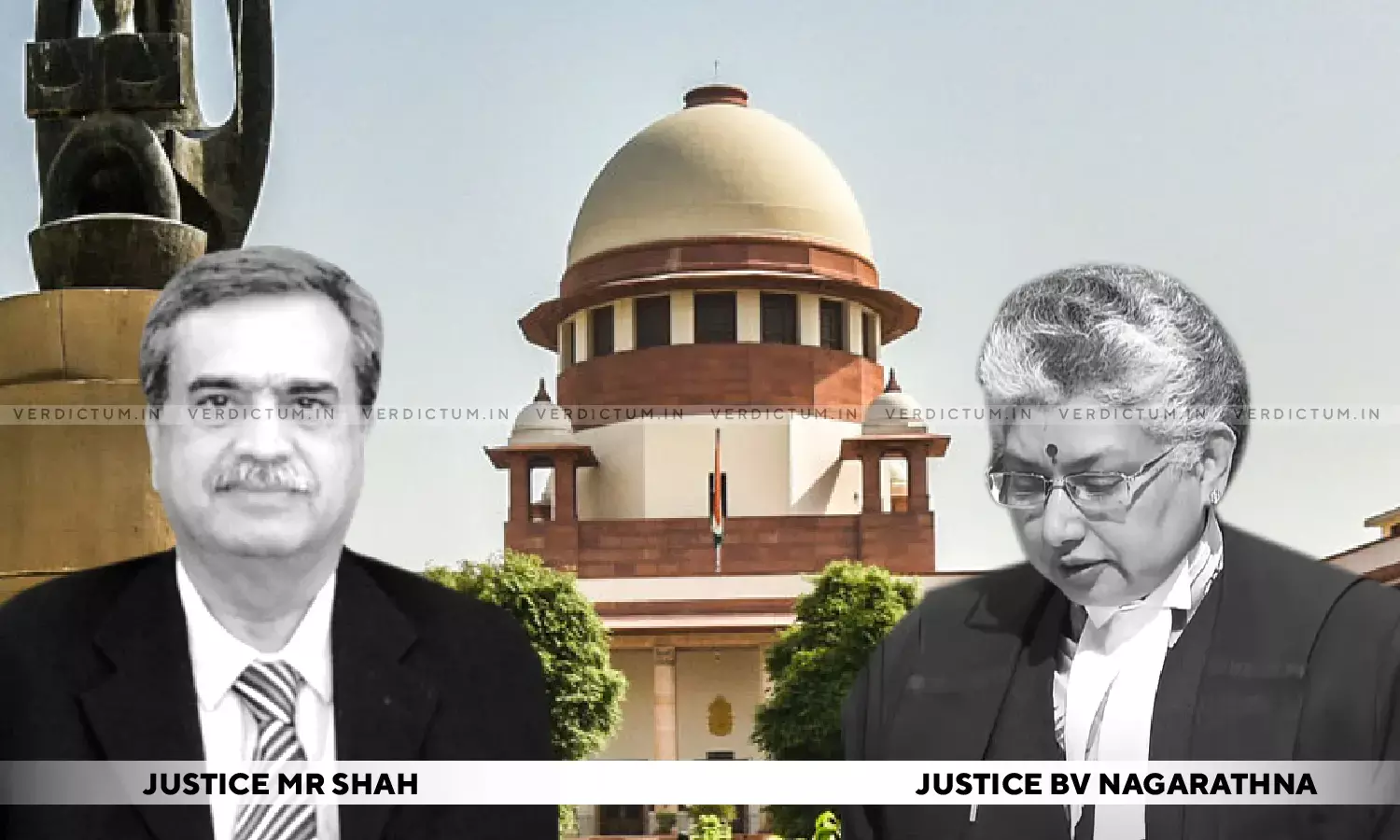Merely Because Long Period Lapsed Since Appeal Was Decided It Cannot Be Ground To Award Inadequate Punishment - SC

A two-judge Bench of Justice M. R. Shah and Justice B. V. Nagarathna has held that merely because a long period has lapsed by the time appeal is decided, it cannot be a ground to award punishment that is disproportionate and inadequate.
Counsel Mr. Vishal Meghwal appeared for the Appellant-State while Counsel Mr. Abhishek Gupta appeared for the accused before the Apex Court.
An appeal was preferred by the Appellant - State of Rajasthan assailing the judgment of the Rajasthan High Court which had maintained the conviction of the accused under Section 307 IPC but reduced the sentence from 3 years Rigorous Imprisonment to the period already undergone by him in confinement (44 days). With respect to another accused, the High Court did not interfere with the order of the Trial Court to convict him under Section 324 IPC and release him on probation under Section 360 CrPC.
Also, it is pertinent to note that the State had preferred an appeal after a huge delay of 1880 days and for which a separate application was filed by the State to condone the delay.
The Apex Court noted that the High Court without any detailed analysis of the facts of the case, nature of injuries caused, the weapon used, had simply reduced the sentence to the period already undergone (44 days).
Further, the Bench held that the manner in which the High Court dealt with the appeal and reduced the sentence without adverting to the facts of the case, and without considering the nature and gravity of the offence committed was unsustainable.
Holding that the High Court dealt with the appeal in the most casual and cavalier manner, the Bench held that reducing the sentence was an instance of travesty of justice and against all the principles laid down by the Court in the past.
The Bench additionally observed -
"Merely on the technical ground of delay and merely on the ground that after the impugned judgment and order, which is unsustainable, the accused have resettled in their lives and their conduct has since been satisfactory and they have not indulged in any criminal activity, is no ground not to condone the delay and not to consider the appeal on merits. Hence, the delay of 1880 days in preferring the appeal is condoned."
The Court also held that in this case, the accused could have been sentenced to undergo life imprisonment and/or at least up to 10 years. However, the Trial Court sentenced the accused to undergo three years rigorous imprisonment. Hence, the Trial Court had already taken a lenient view while imposing the sentence.
"Merely because a long period has lapsed by the time the appeal is decided cannot be a ground to award the punishment which is disproportionate and inadequate. The High Court has not at all adverted to the relevant factors which were required to be while imposing appropriate/suitable punishment/sentence. As observed hereinabove, the High Court has dealt with and disposed of the appeal in a most cavalier manner," the Court opined.
Furthermore, the Bench expressed its concern over the way in which High Courts dispose of the appeals in a cursory manner and by adopting truncated methods.
The Court in this context, opined -
"In some cases, the convictions under Section 302 IPC are converted to Section 304 Part I or Section 304 Part II IPC without assigning any adequate reasons and solely recording submissions on behalf of the accused that their conviction may be altered to Section 304 Part I or 304 Part II IPC. In cases, like the present one, the accused did not press any challenge to the conviction and prayed for reduction in sentence and the same is considered and an inadequate and inappropriate sentence has been imposed without assigning any further reasons and without adverting to relevant factors which are required to be considered while imposing appropriate punishment/sentence. We deprecate such practice of disposing of criminal appeals by adopting shortcuts."
Thus with regards to Banwari Lal, the Court held that impugned order of the High Court of reducing the sentence to the period already undergone by him in confinement (44 days) from 3 years Rigorous Imprisonment is unsustainable and is quashed and set aside.
With respect to Mohan Lal, the Court held that the accused was released on probation, against which the State did not prefer any appeal before the High Court and it was the accused who preferred appeal, which came to be dismissed. Therefore, the State ought not to have preferred an appeal against the accused Mohan Lal, when his appeal before the High Court came to be dismissed and the conviction came to be confirmed.
Accordingly, the Court allowed the appeal filed against Banwari Lal and dismissed the appeal of the State against Mohan Lal.
Click Here to Read/Download Judgment

